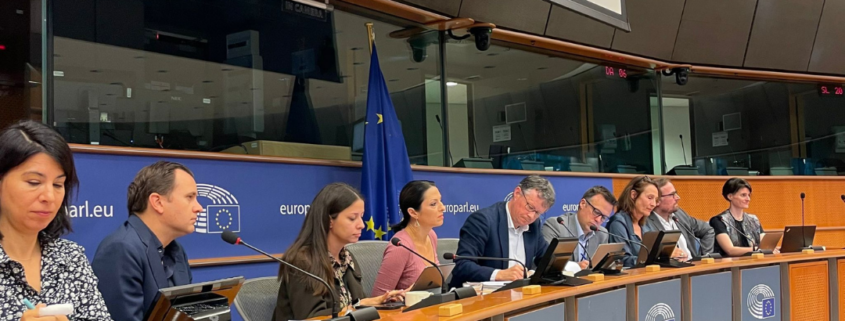Promises are there to be kept!
And not long ago, I promised to provide more comprehensive explanations of the specific articles of the European Media Freedom Act. Before you stop reading because it might be “boring”, the reason behind this article is to offer you a better insight and sense of what exactly we MEPs do in the European Parliament and what a law consists of. Out of numerous laws, this particular one about the media is one of the crucial ones in this term. And since I have been entrusted with the task of negotiating it, I am familiar with the background behind every word and down to the letter. It’s easy to understand why. I have been engaged in its making from start to finish.
Today, I will focus on Articles 6 and 24 that were also centre stage during yesterday’s event in Brussels and speak about the obligation of the media – and of states – to act in a transparent fashion.
We all know that the media play an essential role in society. They provide us with information that is crucial for holding the authorities to account, for casting our votes in elections, for civic participation and more. They are key to the functioning of democracy, and all of them are (potentially) a target of (attempts at) exerting influence. Of course, there is nothing wrong with each media outlet publishing the content it wants. While adhering to basic journalistic and professional standards, that is. It is up to you to decide who – and how much – you trust. Nobody wants to restrict freedom of speech, but we can probably all agree that it is right to publicly disclose media ownership. So that you may all critically evaluate if there are any hidden agendas at play.
Media ownership transparency was already foreseen by the European Commission in its proposal, and the European Parliament has significantly extended these obligations. The media will have to:
- publicly disclose and explain any ownership links with other companies,
- disclose whether they are (directly or indirectly) state-owned,
- disclose how much funding they receive from state advertising or other public sources; and
- disclose any possible connections with politically exposed people and their close associates as well as their financial interests.
In practice, Member States will have to allow the competent regulatory authority to enter all this data into a publicly accessible database, which will then be merged into a common European Union database.
In continuation, state bodies, state-owned companies and all public institutions will have to ensure that the allocation of their funds for advertising and for the purchase of other goods and services from the media follows transparent, objective and non-discriminatory criteria. This is where most of the abuses occur, as some individuals flout all the rules and exploit state funds to financially bolster the media that align with them, either for the purpose of control or seeking favours.
So now, each purchase will have to be publicly disclosed and include a brief explanation of why the particular media outlet or portal was chosen for advertising. Certain fundamental elements, such as the reach of advertising, target audience, and best available offer, simply cannot be ignored.
Due to the large amount of such data, it has been decided that the national regulatory authority will carry out and publish an annual review of all such state purchases. This should be done in the form of an annual report of all transactions by state-owned enterprises with individual media companies. In cases of suspected abuse, the regulator will be able to request further explanations and information from state-owned enterprises, and in the event of infringements it will be possible to bring court proceedings at Union level.
In EU Member States, abuses occur to varying degrees, ranging from severe instances in Hungary, for example, where the media system has been entirely dismantled through such state funding methods, to less extreme cases in more regulated countries; but unfortunately, none are immune to abuses.
As a next step, these obligations were extended to online platforms, where there is also (potential for) abuse. In addition, these platforms directly compete with traditional media for advertising revenue while also serving as a means for accessing that same media. It would be unjust to exclude them from the scope.
All these mechanisms will now have to be set up at national level and it is true that they will result in additional work for public institutions, but this is the only way to put the situation right. To give you a clear overview of where your money is being channelled through state-owned companies or public institutions, and where the media is being funded from. It is appropriate that the system of rules is established at the European level.
These were Articles 6 and 24, which – I have to say this – following difficult parliamentary negotiations, now include most of my proposals and amendments. The text will be voted on in plenary next week.
– Irena




Leave a Reply
Want to join the discussion?Feel free to contribute!